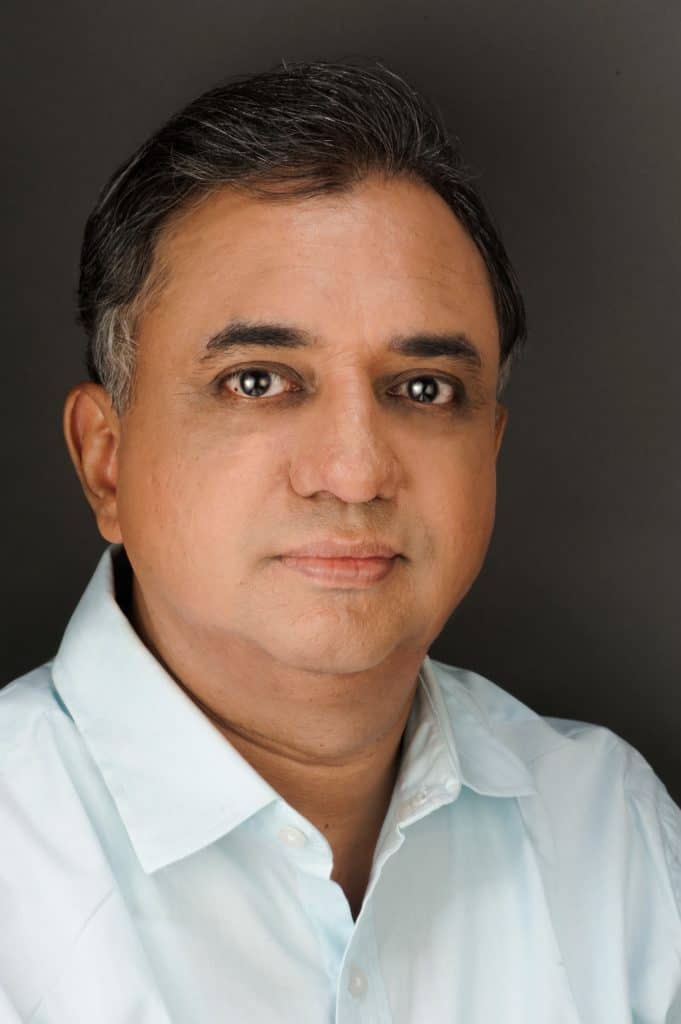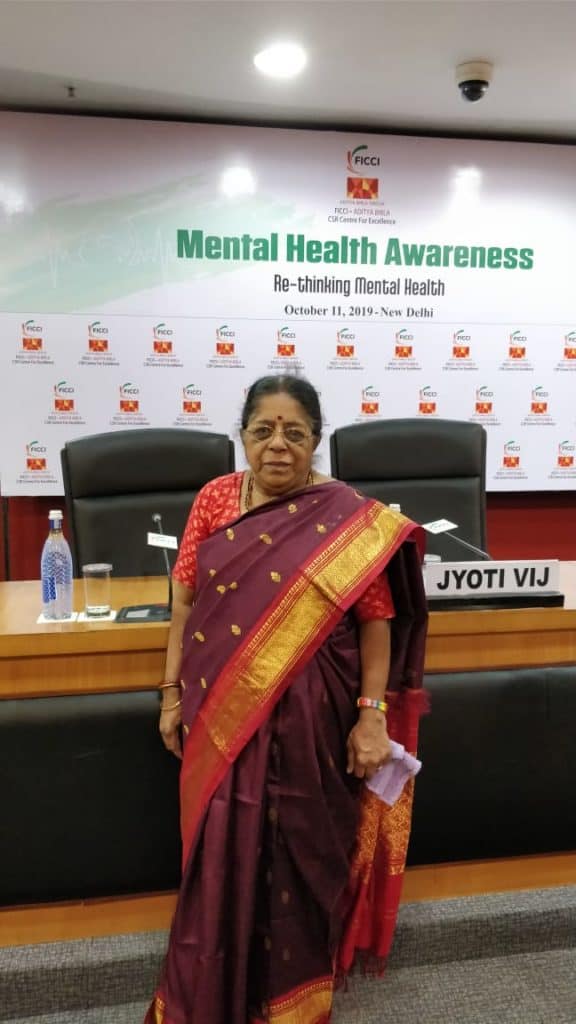This is the second of a two part series on why health insurance companies refuse to reimburse treatment cost of mental illness despite laws and insurance regulator guidelines saying they must treat mental illness on par with any other physical illness.
The cost of regular psychiatric medication can be substantial. A person with a mental illness is rarely hospitalised. But there are no reimbursements for non-hospitalisation treatment, rehabilitation or outpatient services.
“Why is there reluctance from insurers?” asks Vijay Nallawala, Founder of Bipolar India and Co-Founder of the Mental Health Support Foundation. “Unlike somebody with a cardiac problem, the treatment of which would cost lakhs, this is not the case in mental illness.
“Hospitalisation happens very rarely. I’m bipolar and am paying a policy premium since 2003. Till now, I’ve not raised a claim on account of mental illness, whereas I have been hospitalised for other physical ailments. So, the argument that health insurance products for mental illness are an economically losing proposition for insurance companies is not logical.”
Read more: Health insurance for informal workers: What are the options available?
Unfortunately, policy holders seldom follow up on the rejections. “United efforts are required from families to approach authorities,” feels Dr Nirmala Srinivasan, Ashoka Fellow and Founder of FACEMi – Families’ Alliance on Mental illness.
“Insurance companies are a business with multiple stakeholders. Advocacy is required. In a country like India, we have so many challenges, not because of stigma and discrimination but because the system is full of flaws. This can only change with advocacy”.
According to the National Mental Health Survey (2015-2016) by the National Institute of Mental Health and Neuro Sciences, over 80% of people with depression, substance abuse or anxiety disorders do not have access to healthcare. While stigma and lack of awareness among the general public always top the list of reasons, a crucial factor is the skyrocketing cost of treatment.

Rising costs of treatment
According to a survey report from NGOs based in Bengaluru – Mythri, FACEmi and AMEND – Long Stay Facilities in Bangalore for PMI/Families, 2018, on average a family spends Rs 7000 to Rs 60,000 per month on medicines, outpatient treatment, care for PMIs (Persons with Mental Illness) provided by NGOs, the private sector and costs of care at various centres, depending on the illness. The estimated monthly expenditure is pegged at Rs. 10,000/month per PMI by them.

Rajeshwari, (Delhi) the caregiver to her daughter who suffers from mental illness, says: “Treatment is expensive. Insurance is a necessity today for us. All insurance policies must cover mental illness, and insurers must see the world through our lenses. “
Drawing a comparison to mental health policies of western countries, Dr Nirmala says: “America took 40 years to get insurance for PMIs, while India took just 4-5 years after the Act. This is a road less travelled by insurers and insured.”
The central government’s Ayushman Bharat health scheme can be availed only by families that are below the poverty line and does not cover mental health treatment at private hospitals, while foreign countries provide coverage for all forms of services.
“These are developed countries, and they are aware of the value of mental health,” says Vijay Nallawala. “They also know the connection between mental and physical health.”
The Mental Healthcare Act of 2017, among other things, made mental healthcare services accessible and affordable and facilitated medical health insurance as a protection for people facing financial risk.
Read more: Why government schemes aren’t reaching those who need it the most in Mumbai
T K Muthu, administrative officer, New India Insurance explained in a webinar on mental illness and insurance that after April 2021, all general insurance policies must cover mental illness. “Full body check-up is required, but there are some policy clauses and mental health hospitalisation claim cannot be granted for the first three or four years of the coverage,” Muthu pointed out.
According to the Indian Mental Health Observatory (IMHO), several insurance companies do not cover mental illness in their insurance proposal. (See box)
Insurance for persons with mental illness is still work in progress. No doubt, some insurers support it, but unless all stakeholders sit together, re-evaluate the gaps in mental health insurance coverage, and their staff is sensitised, we may not be able to make much progress.
“We require a joined, collaborative movement like that of the LGBTQ community,” says Nallawalla. “Families have to come out of their stigma syndrome and do advocacy for health insurance for mental illness. United, we can make the change happen.”
Case Study: Shikha Nishcal v. NICL, 2021(National Insurance Company Ltd
Facts: The petitioner Shikha Nishcal had purchased health insurance policies from the National Insurance Company Limited in 2016. She purchased her last medical healthcare policy named National Mediclaim policy in May 2020 which was valid for one year.
In June 2020, she was diagnosed with Schizoaffective Disorder, a kind of mental illness. The hospital treatment cost about Rs 5 lakh. She claimed reimbursement from the National Insurance Company Limited as per their healthcare policy, which provided for all expenses related to hospitalization for any kind of suffering.
The company rejected her claim stating that it is not liable to pay for expenses in case of any mental disorder or illness.
Petitioner’s claim
- The petitioner filed a complaint before the Insurance Ombudsman stating that the company should comply with the provisions of Section 21(4) of the Mental Health Care Act of 2017 and provide the petitioner with all the expenses that she incurred during her treatment and that the mental illness should be treated in the same way as that of the physical illness.
- The petitioner stated in her plea before the Insurance Ombudsman, that the company had reimbursed Rs 3 lakh but had said the full amount of Rs 5 lakh could not be paid as it was not mentioned in the policy.
- The petitioner also filed a writ petition under Article 226 of the Constitution of India against the National Insurance Company Limited in the Delhi High Court stating that mental illness should be covered under the health insurance policies by the National Insurance Company Limited in compliance with Section 21(4) of the Mental Health Care Act of 2017.
Findings of the High Court
The Delhi High Court held that all insurance companies should include provision of mental health within their ambit and they should provide all the expenses to persons suffering from any mental illness or disorder.
The High Court further observed that denial of such reimbursement was
- Violation of Article 25 of the United Nations Convention on Rights of People with Disabilities
This article states that there should be no discrimination against persons with mental illness and it should be the responsibility of the states to keep a check on the insurance companies that they are acting fairly and reasonably in providing insurance to the people with both physical and mental illness.
On Violation of Section 21 of the Mental Healthcare Act, 2017, after analysing the sections and conventions, the Court held that:
- Equal protection should be extended to persons suffering from mental illness in the same way as that of physical illnesses.
- It is the function of the Insurance Regulatory and Development Authority of India (IRDA) to ensure that the laws enacted by the policymakers are compiled with by the health insurance companies and with the provisions of Section 21(4) of the Act.
- Rejected the order of the Insurance Ombudsman as it was contrary to the provisions of the Act and recognised the rights of the petitioner.
Mental illness coverage among health insurance providers
The research and findings of the Indian Mental Health
Observatory (IMHO):
ACKO– Group Health Insurance Policy- Approved by IRDA on 28.9.20- states under the policy description that –“Neurosis and psychiatric illness is excluded.”
ACKO-Health Insurance Policy- Approved by IRDA on 21.5.2020- states under policy description- “OPD cover is included, all psychiatric related clauses are excluded.”
Aditya Birla – Group Arogya Sanjeevani Policy- Approved by IRDA on 09.09.2020- Domiciliary hospitalisation expenses for psychiatric or psychosomatic disorders are not covered.
Bajaj Allianz– Extra Care-Approved on 12.08.2020-Mental illness, 25 per cent of the sum insured or 200,000 whichever is lower.
Care Health-Assure-Approved on 20.09.2020-Neurosis and psychiatric illness not covered.
ICICI Lombard– Complete Health Insurance- Approved on 02.07-2021- No information available.
(Source: The detailed list can be viewed at the link https://public.tableau.com/app/profile/imho.siren/viz/InsuranceProvidersandMentalHealthinIndiav5/Dashboard1?publish=yes )
Well written article